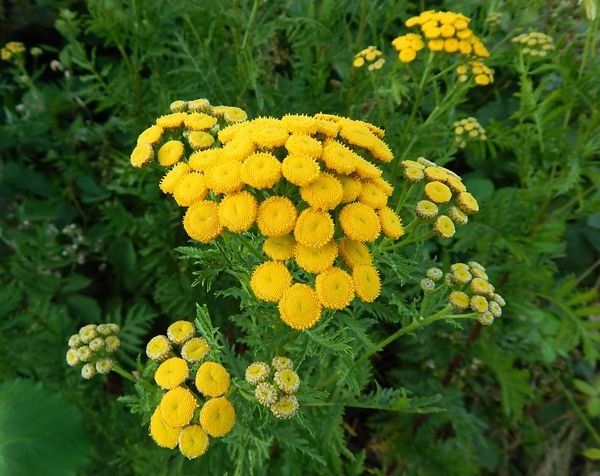
Tanacetum vulgare also Chrysanthemum vulgare, aka Scented Fern, Stinking Willie, Bitter Buttons, is an extremely hardy perennial herb you use the leaves, and flowers of. It grows 3’ – 5’ high and can be found on roadsides, abandoned land, and in waste places. Zones 3 – 9.
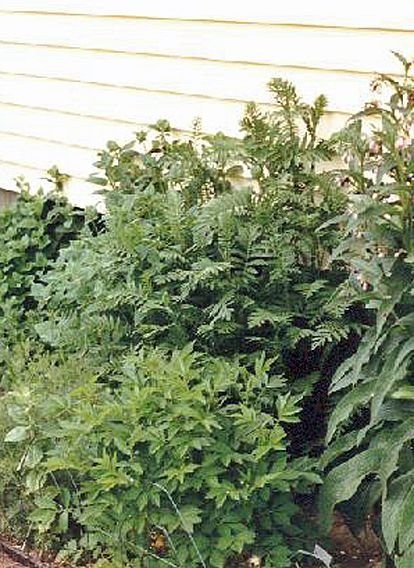
This was one of the original herbs planted in the first herb garden in 1992. It has survived in the same place to this day.
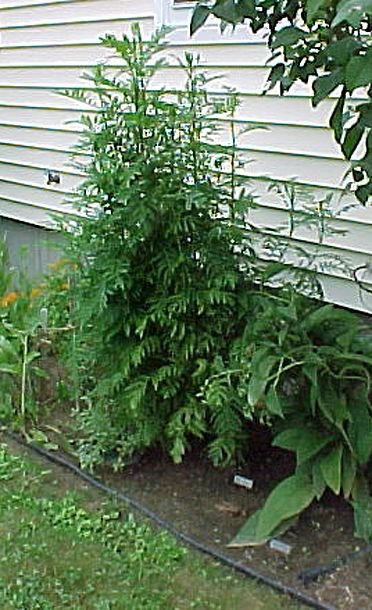
July 2003 and still going strong
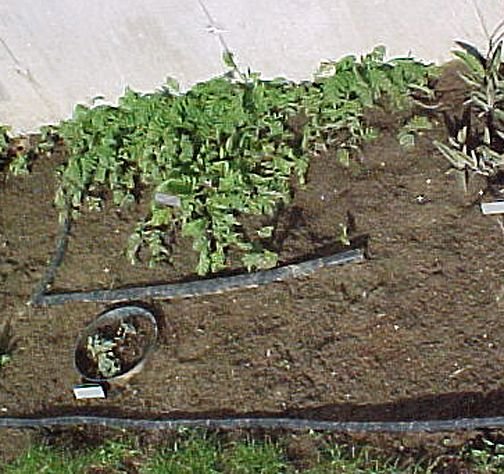
Just coming up in April 2005
Flowers: dense clusters of flat, button-like, mustard yellow flowerheads, flowers July – October, on the ends of the stems
Leaves: feathery, dark green, narrow, lance shaped leaves with deeply toothed leaflets alternating along the stem. Fern-like.
Cultivation: full sun but will tolerate partial shade or light shade, prefers well drained soil that’s medium dry. Sow in spring or divide the roots in spring or fall.
Plant 2’ – 3’ apart, will need frequent thinning as it is invasive. Don’t grow indoors.
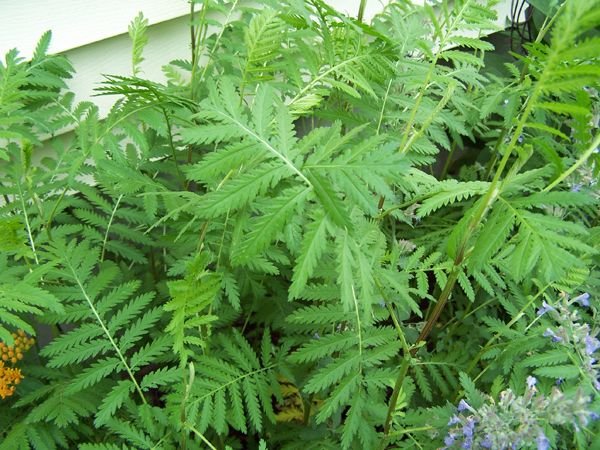
Medicinal: leaf tea is good for colds, stomach ache, and getting rid of intestinal worms.
Leaves in a poultice are good for cuts and bruises.
Flowers and leaves in an infusion are good from sprains, but can irritate skin.
Do not use during pregnancy.
Culinary: leaves are good with rhubarb, as a rub for meat, or in meat pies, omelets, and stuffing.
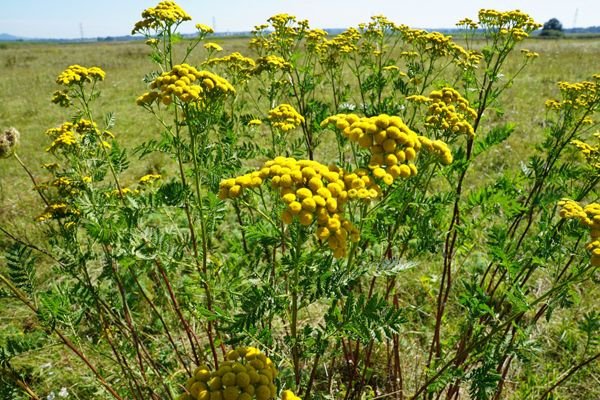
Other: the plant resists frost and cold. It will grow in the same patch for decades.
Plant it near fruit trees to repel insects.
Flower: makes a golden dye
Leaves: wrap meat in the leaves to deter flies and preserve it.
Deters ants and mice
Use plant in compost for its potassium content.
I’ve dehydrated the leaves and flower rays to feed to the layers over the winter to get rid of intestinal worms. I also dry it and use it for bug deterrent in my cedar closet.
There are many medical uses for this plant, but I’ve not yet tried any.
References:
Taylor’s Perennials page 98
Field Guide to Herbs page 66
Field Guide to Wildflowers page 249
Credit: tansy in field CC0 Domaine public
